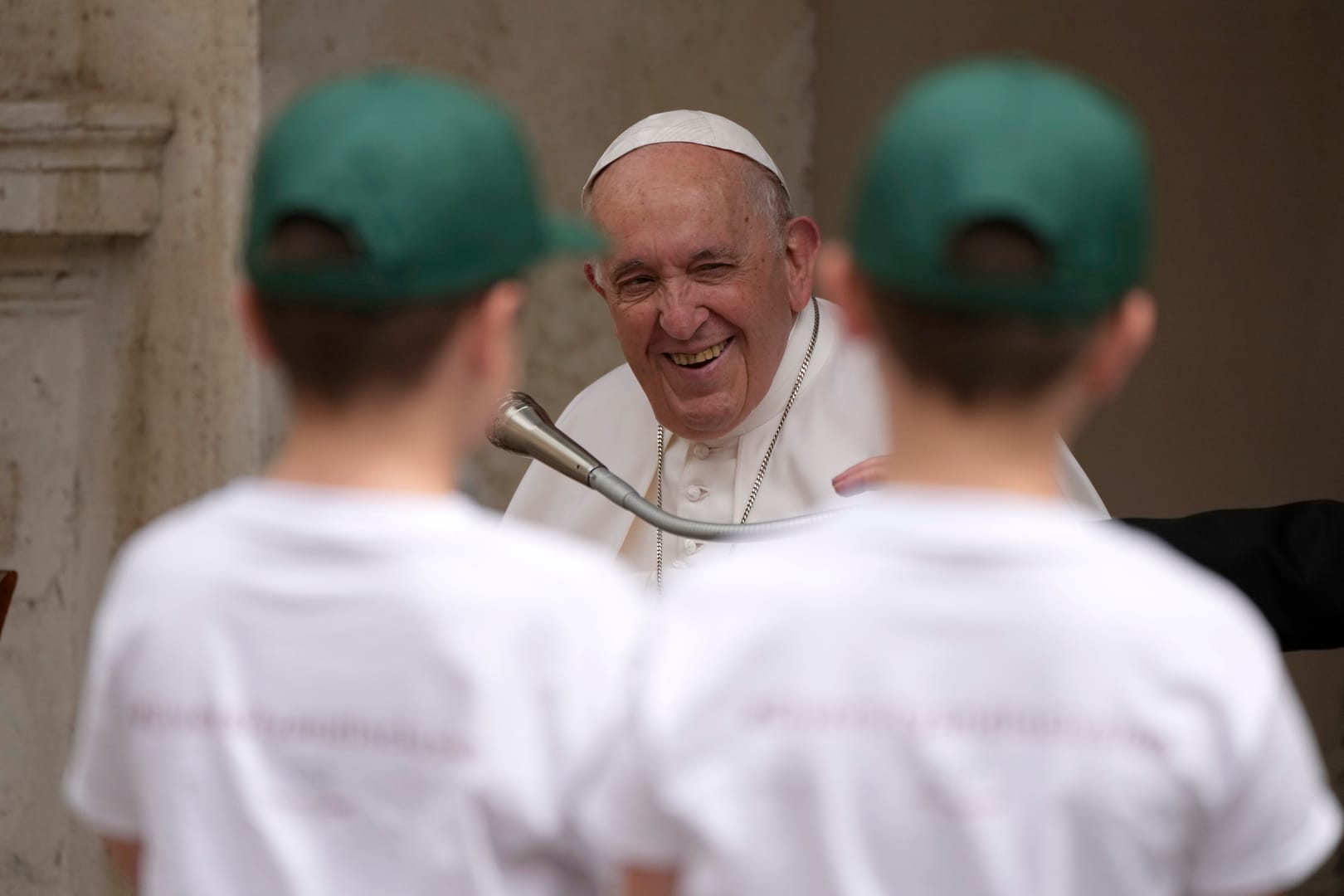ROME – Kyiv’s Latin rite bishop said in a new interview that while a papal visit to Ukraine would be a source of hope, it is not currently possible due to security concerns and a growing distrust of the pontiff given some of his recent public remarks on the war.
Speaking to Avvenire, the official newspaper of the Italian bishops, Bishop Vitaliy Krivitskiy said, “The pope’s intention to be in the midst of a suffering people is for us Catholics, starting with me as a bishop, a reason for great hope.”
“We feel his closeness which is manifested through his repeated calls for a ceasefire and with concrete gestures that have also resulted in multiple dispatches of humanitarian aid. And then there is his constant prayer that involves the whole church. His visit would give us further courage,” he said.
However, asked if it was possible to estimate a timeline for when a potential papal visit to Ukraine might take place, Krivitskiy said no.
Not only does the pope need a high level of security that would be challenging to provide given that most Ukrainian soldiers are deployed to the frontline in the fight against Russia, but “It should be added that, compared to the beginning of the conflict, a part of the population did not welcome the pope’s words, which were considered incorrect,” Krivitskiy said.
Though he did not refer to which statements the pope had made, it is well known that Pope Francis’s hesitancy to back the arming of Ukraine in its fight against Russia and his suggestion that NATO could have provoked the war have caused widespread controversy.
In a recent conversation with editors of the Jesuit-run paper La Civiltà Cattolica that was published Tuesday, Francis, referring to the war in Ukraine, said, “There are no metaphysical good guys and bad guys here, in an abstract way. Something global is emerging, with elements that are very intertwined with each other.”
He condemned “the ferocity, the cruelty of Russian troops,” but criticized the arms trade, too, for incentivizing the war, which some observers took as opposition to arming Ukraine.
Francis also referred to a conversation he had with an unnamed head of state before Russia’s Feb. 24 invasion of Ukraine, in which the politician allegedly said that NATO was “barking at Russia’s doorstep,” and that NATO’s activities “could lead to war,” indicating that NATO could, in part, be responsible for the conflict.
The pope has received pressure over other remarks and decisions he has made since the war began, such as asking a Russian woman and a Ukrainian woman to carry the cross together during the Good Friday Via Crucis in Rome.
He has been photographed kissing a Ukrainian flag from Bucha, where alleged war crimes occurred, and has continually called for a ceasefire and offered to assist in negotiations, but he has yet to name “Russia” or “Putin” as the aggressors in the conflict.
In an interview with Italian newspaper Corriere della Sera in May, the pope stopped short of opining on whether it was appropriate for other nations to arm Ukraine, saying, “I can’t answer; I’m too far away.”
“The clear thing is that weapons are being tested in that land. The Russians now know that tanks are of little use and are thinking of other things. Wars are made for this: to test the weapons we have produced,” he said in the interview. “The arms trade is a scandal; few fight it.”
These remarks have drawn criticism from friends and foes alike, including the pope’s longtime friend from Buenos Aires, Major Archbishop Sviatoslav Shevchuk, who oversees the Greek Catholic Church in Ukraine.
In an apparent response to the pope’s remarks in La Civiltà Cattolica, Shevchuk in a recent video message said, “the causes of this war lie within Russia itself. And the Russian aggressor is trying to solve its internal problems with the help of external aggression.”
“Russia’s aggression against Ukraine is completely unprovoked,” he said. “Anyone who thinks that some external cause has provoked Russia into military aggression is either themselves in the grip of Russian propaganda or is simply and deliberately deceiving the world.”
Pope Francis also recently granted a nearly two-hour audience with a small group of Ukrainians who were concerned about his “ambiguous” rhetoric on the war.
RELATED: Ukrainians meet pope to bridge ‘ambiguous’ communication gap
In his interview with Avvenire, Krivitskiy said that in order for the pope to visit Ukraine, it is necessary “to reconstruct a ‘consensus’ around his journey.”
This takes time, he said. “It would be an extraordinary joy to welcome Pope Francis to Kyiv, but at the moment I maintain that there are not the conditions for the visit.”
Krivitskiy, who was appointed to Kyiv by Pope Francis in 2017, oversees around 200,000 Latin rite Catholics in a city of roughly eight million.
Asked whether he believes the pope can still contribute to stopping the war, Krivitskiy said “certainly,” and that the Holy See “can play a fundamental role as mediator between us and Russia.”
“The negotiations need ‘conciliators’ and the pope is [one], although some here no longer consider him super partes (nonpartisan),” he said.
Despite the controversy over the pope’s remarks, Krivitskiy voiced confidence that Francis and all involved in Vatican diplomacy “are sowing seeds to create an environment of dialogue which is the prerequisite for opening negotiations.”
Follow Elise Ann Allen on Twitter: @eliseannallen






